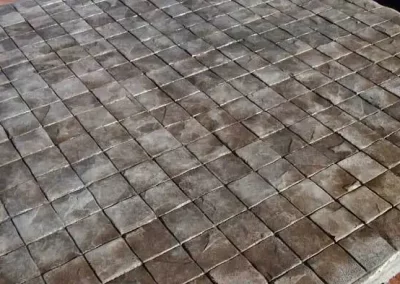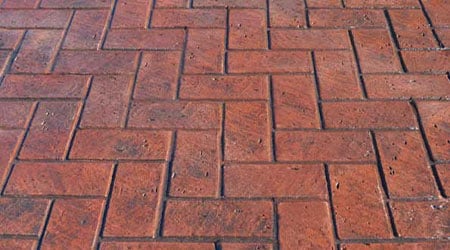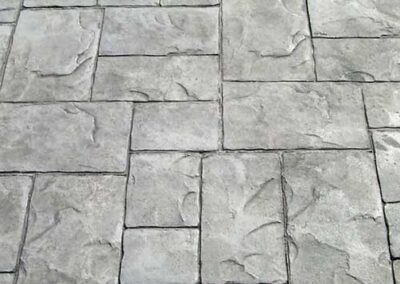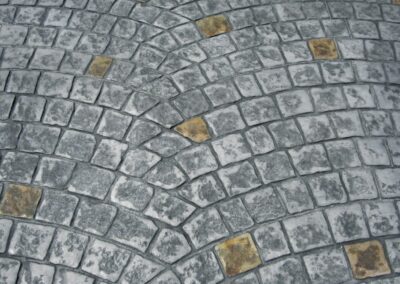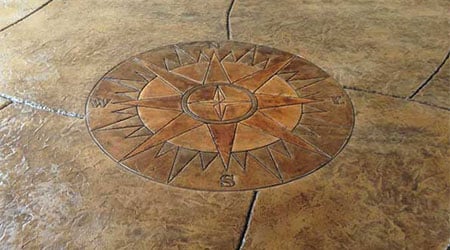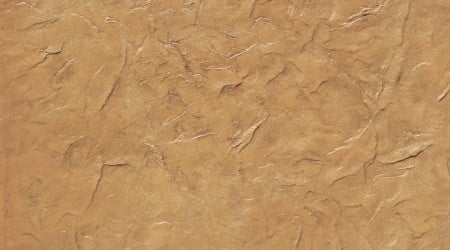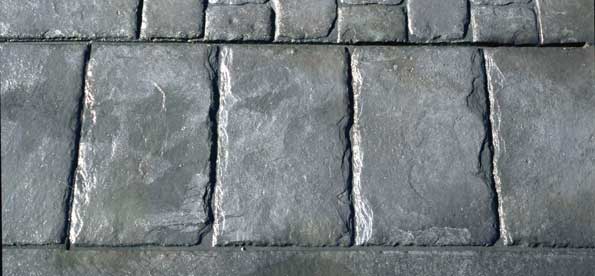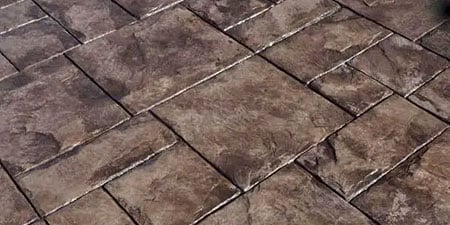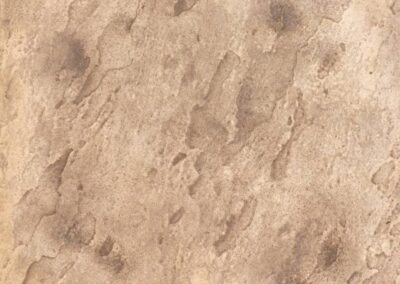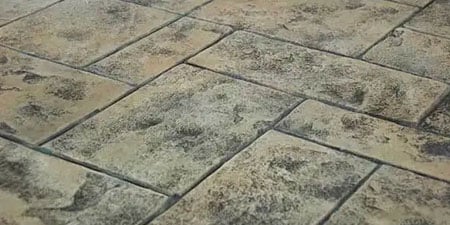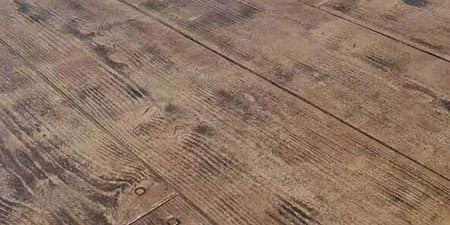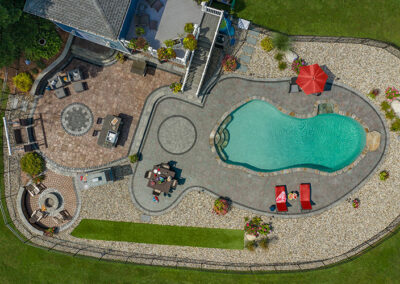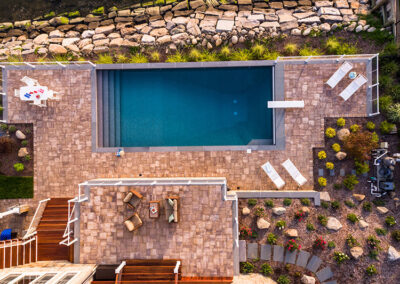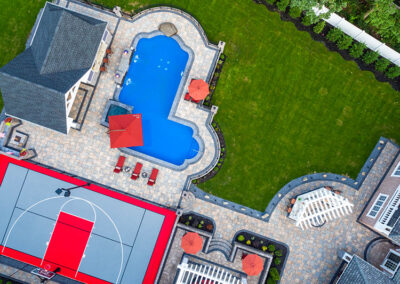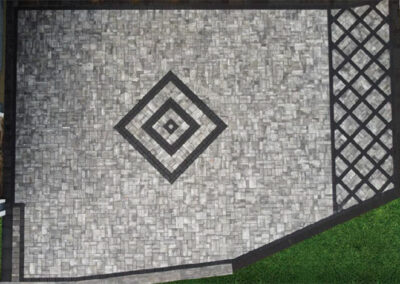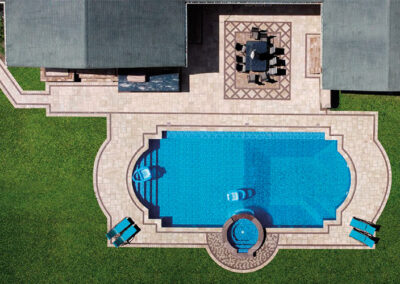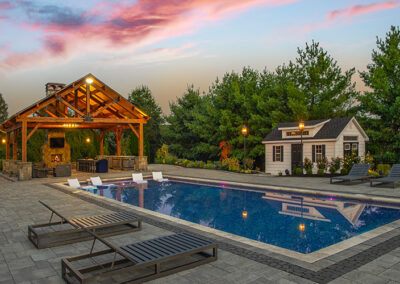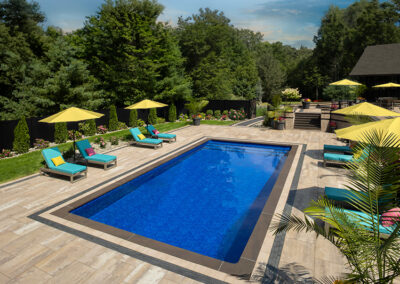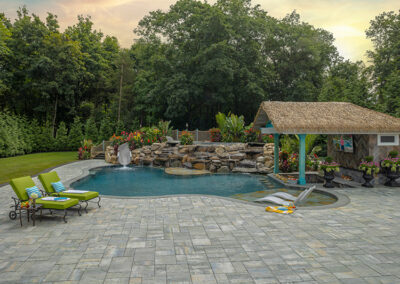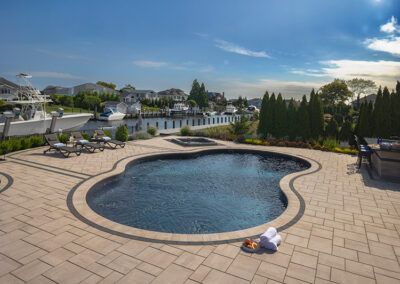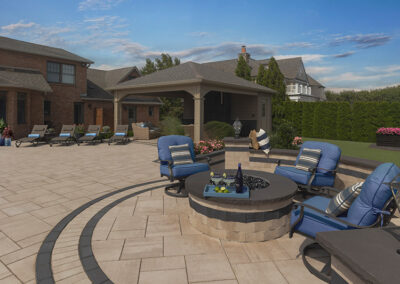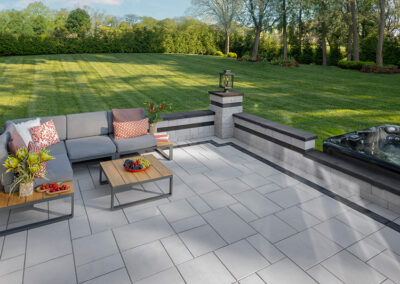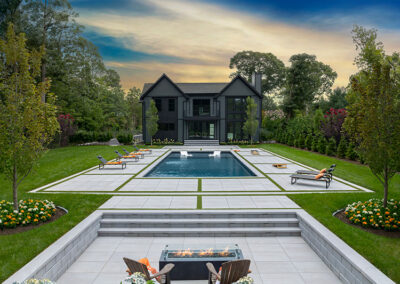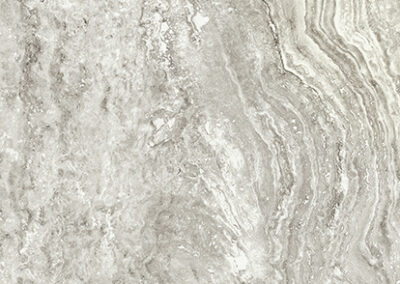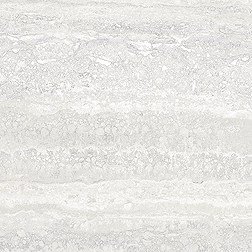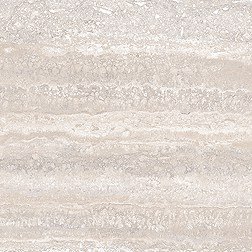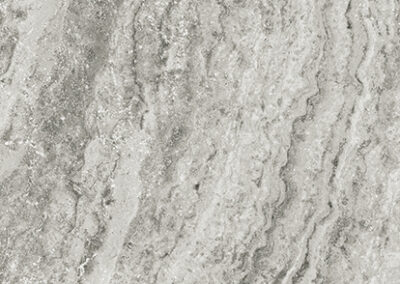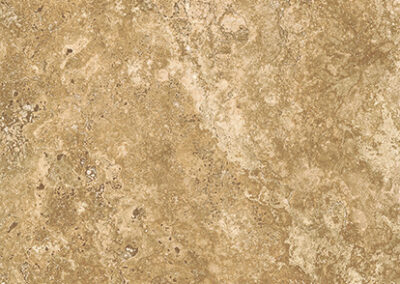Perfect pool decking
Whether your current pool deck is old and worn, or you just want to upgrade to a new travertine paver, stamped concrete or luxury patio deck, WE ARE READY TO HELP.
Exploring Pool Decking Options: Concrete, Pavers, and Travertine
When it comes to designing the perfect pool area, one of the most important decisions you’ll make is selecting the right pool decking material. Pool decks not only enhance the aesthetic appeal of your backyard but also need to be durable, slip-resistant, and easy to maintain. With so many options available, it can be overwhelming to choose the best one for your pool area. In this article, we’ll explore four popular pool decking options: regular concrete, stamped and stained concrete, pavers, and travertine, each with its own benefits and considerations.
908-362-9265
Stamped and Stained Concrete
Stamped and stained concrete offers the same benefits as regular concrete but with a significant upgrade in design. This option allows homeowners to incorporate intricate patterns and a variety of colors, giving the pool deck the appearance of more expensive materials like stone or brick, without the hefty price tag. Stamped concrete is poured in a liquid state and then imprinted with a stamp to create various patterns, while staining adds color to the concrete, either enhancing its natural hue or giving it a completely new look. This type of decking offers better aesthetics and can be made to mimic natural stones like slate or flagstone. Additionally, stamped and stained concrete is more resistant to cracking than regular concrete, but it does require resealing every few years to maintain its color and texture.
Pavers
Pavers are another popular option for pool decking, offering a more refined and high-end look compared to regular concrete. These interlocking stones come in a variety of materials, including concrete, brick, and natural stone, and offer endless design possibilities in terms of color, shape, and pattern. Pavers provide excellent durability and are more resistant to cracking than poured concrete because they can expand and contract with temperature changes. Additionally, the joints between the pavers allow for better drainage, preventing water from pooling on the deck. While pavers can be more expensive to install than concrete, their aesthetic appeal, longevity, and low-maintenance nature make them a worthwhile investment. However, they do require occasional maintenance, such as weed control between the joints and re-leveling if the pavers shift over time.
Travertine
Travertine is a luxurious natural stone that adds elegance and sophistication to any pool deck. Known for its beautiful appearance and smooth texture, travertine is available in a range of colors, from light beige to deep brown, and can be cut into tiles or slabs. One of the key benefits of travertine is its natural ability to remain cool even under direct sunlight, making it an ideal option for pool areas in hot climates. It is also highly slip-resistant, even when wet, which adds an element of safety around the pool. Although travertine is one of the more expensive pool decking options, it offers unmatched beauty, durability, and longevity, making it a worthwhile investment for those looking to create a luxurious outdoor space. However, travertine requires periodic sealing to protect against stains and weathering.
Regular Concrete
Regular concrete is one of the most commonly used pool decking materials due to its affordability and versatility. It provides a smooth, flat surface that is simple to install, making it a popular choice for homeowners on a budget. Concrete can also be customized in terms of color and texture, although it lacks the intricate design features that other options offer. While concrete is durable and long-lasting, it can crack over time due to shifting soil or weather changes, and it can become quite hot under the sun, making it uncomfortable to walk on in warmer months. Despite these drawbacks, regular concrete remains a solid choice for pool decks due to its straightforward installation and cost-effective nature.
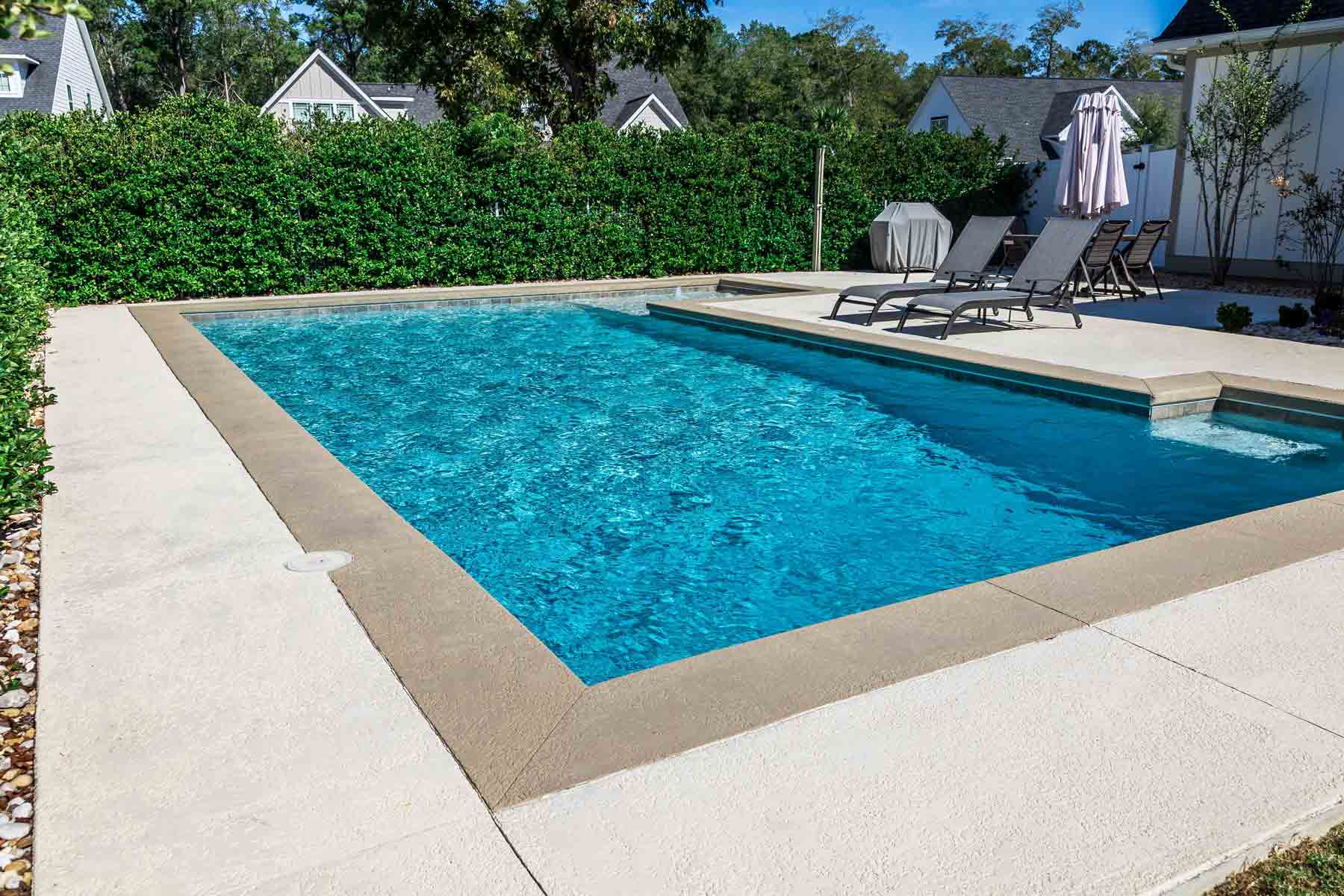

Sundeck Classic Texture
- For installations, we use this spray texture, an exclusive and original acrylic concrete pool deck coating that gives your deck a slip resistance surface, weatherproof, durable, and all the time beautiful. This is much-preferred by residential and commercial space owners for the safety and aesthetics it assures them.
Stained Concrete
Is your concrete pool deck not the right color? You are no longer restricted to plain gray cement slabs. A pool deck recolor can be done with just the application of stains. You can choose from an acid type, which yields random effects and color tones, or the water-based type, which produces more consistent colors.
Stamped Concrete Overlay
You can have a custom concrete designed around your pool that matches the style of the pool, as well as your usage needs. For instance, you might choose to incorporate flagstone pattern on the coping and ashlar pattern on the rest of the deck. A customized stamped concrete pool deck rules! It’s simpler than ever to customize concrete, particularly with new overlay and patterning products that give you the look of any material on the market. Have you longed for a deck made of interlocking natural stone? Perhaps you love the look of warm brick or prefer the stylish look of cobbles. Any of these can be achieved with a stamped overlay.
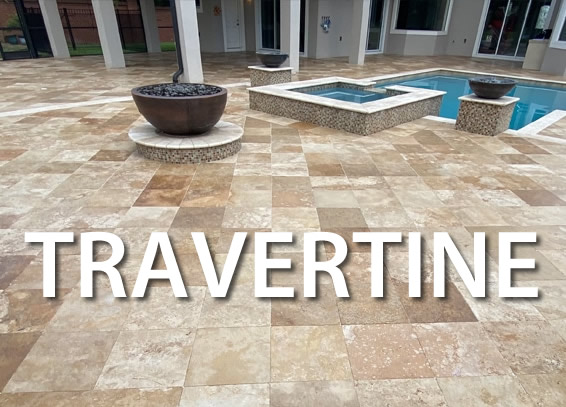
HOT WEATHER FRIENDLY
If you live in the South, you know that some materials can get so hot in the summer sun that they can easily burn bare feet. One of the wonderful things about travertine stone is that it keeps your feet cool and you don’t have to worry about your friends or family burning themselves.
Timeless natural beauty
Travertine has a natural variation in color and pattern that never goes out of style and evokes a sense of luxury and opulence.
Improves your home’s value
Buyers love to see a travertine patio or pool deck. Because of their classic beauty and durability, these pavers can boost your resale value.
Durable and reliable
A travertine deck lasts for a very long time. You can expect well-maintained pavers to last many decades. Some last over one hundred years. This stone can handle high residential traffic indoors or outdoors.

